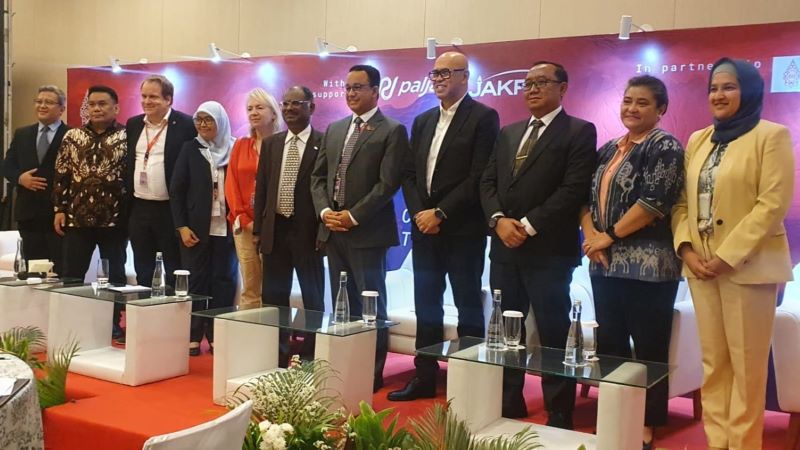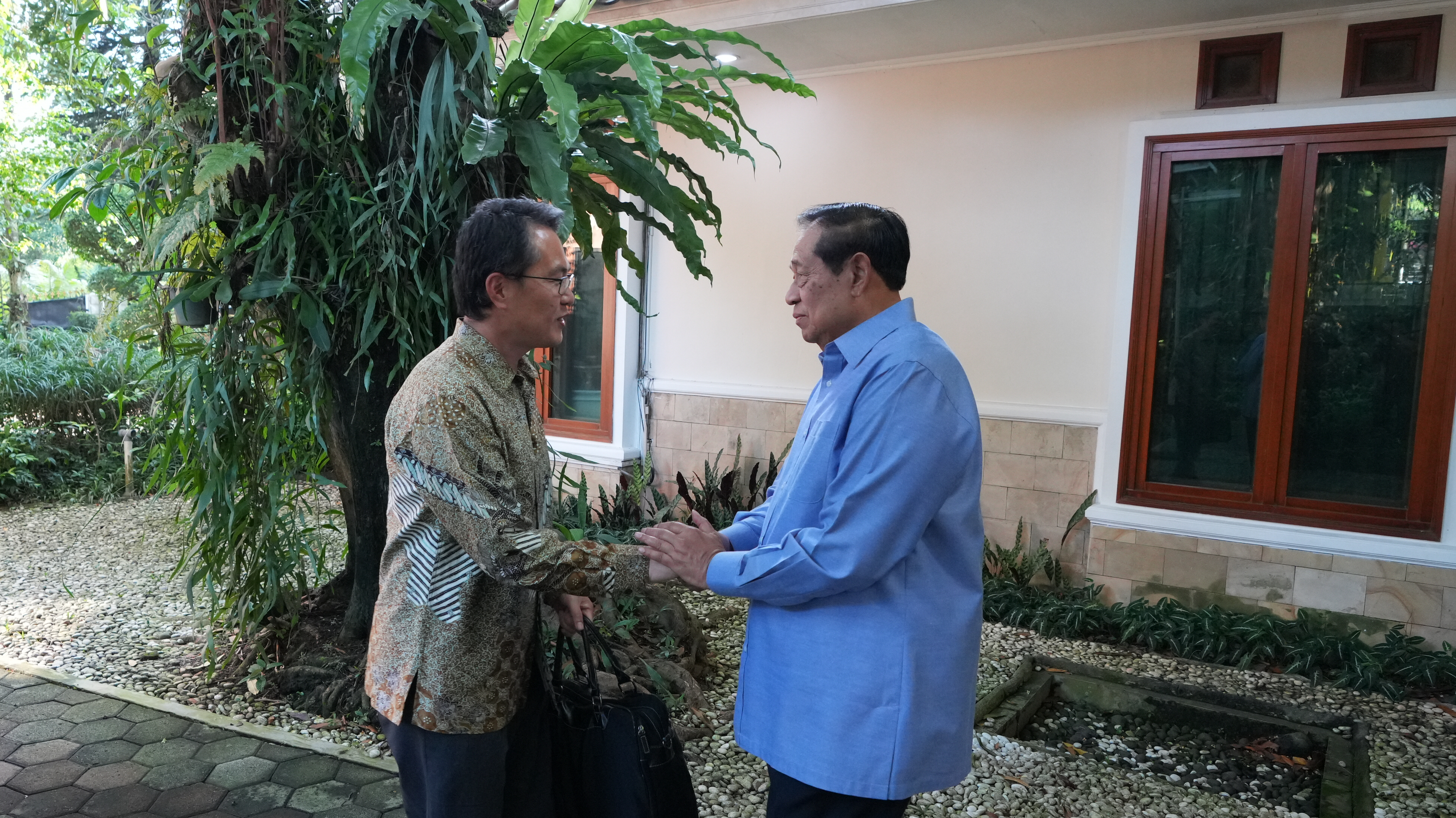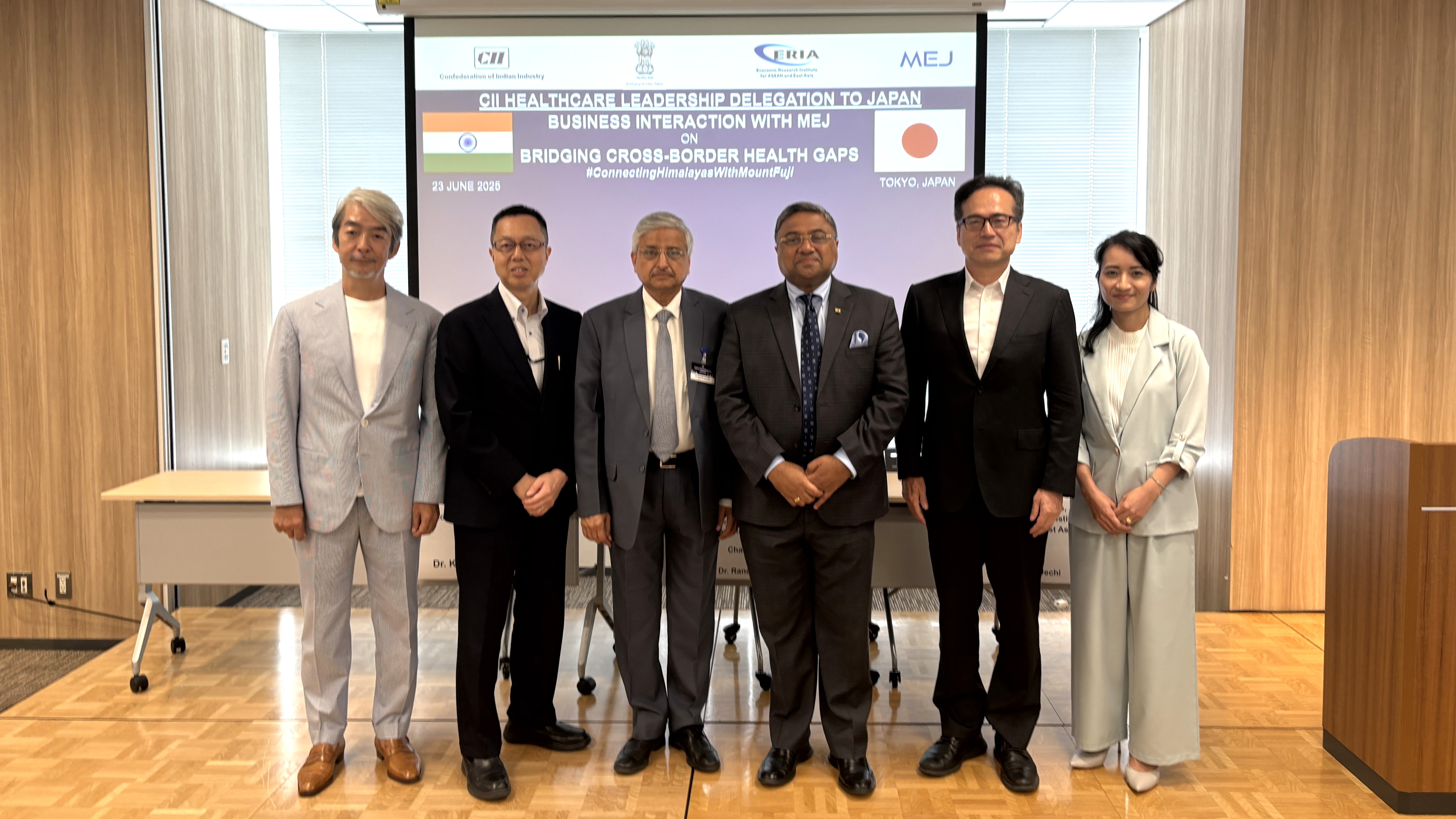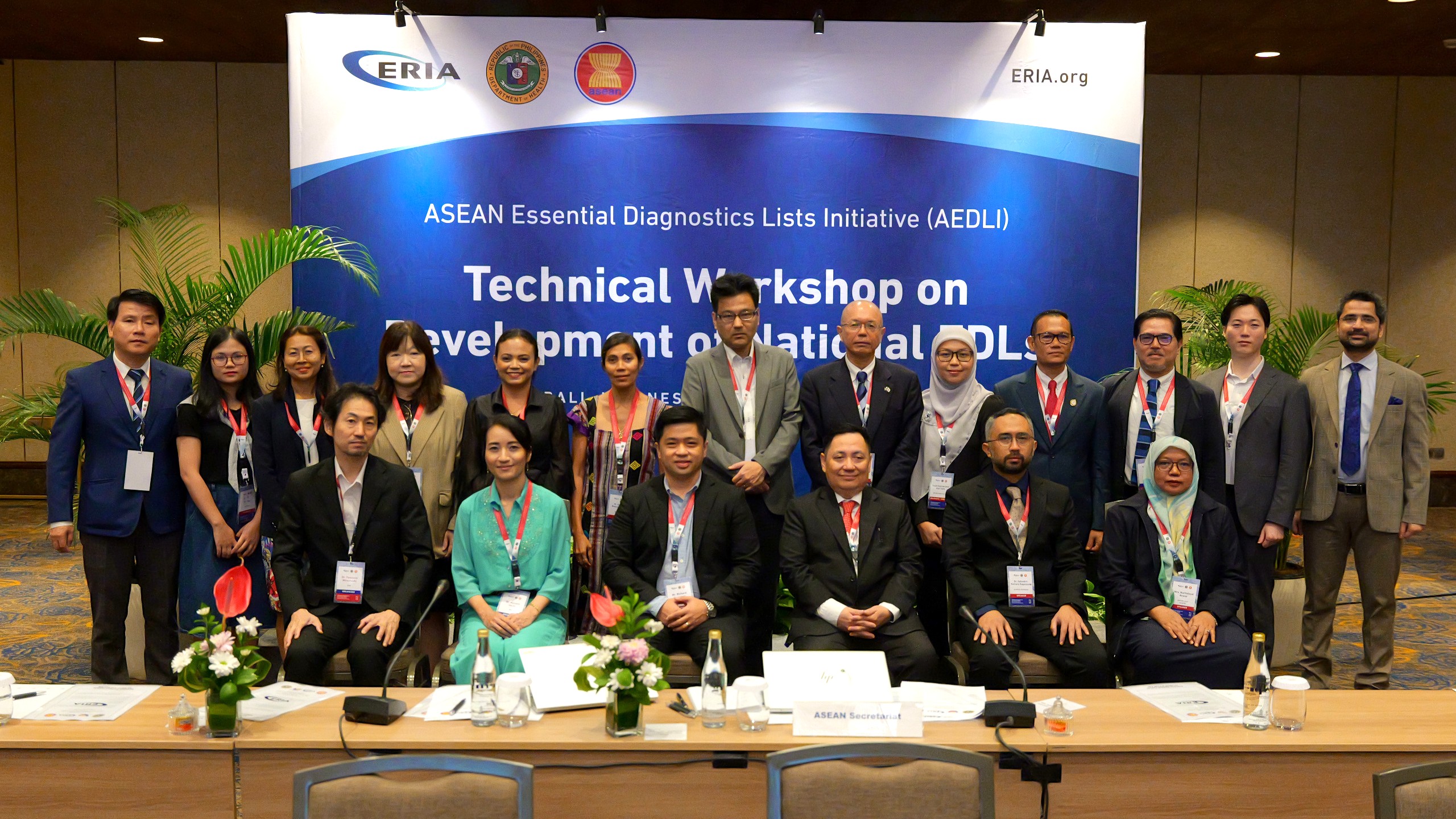Sustainable Urban Development Supports Creation of Circular Economy and Promotes Resilience
Date:
30 August 2022Category:
-Topics:
-Share Article:
Print Article:
Jakarta, 30 August 2022: The growing push of urbanisation, particularly in emerging economies, has propelled sustainable urban development issues at the forefront of the G20 presidency of Indonesia. Sustainable infrastructure is one of the top agendas under Indonesia’s G20 leadership in keeping with its three main pillars: 1) Global health architecture, 2) Digital transformation, and 3) Sustainable energy transition. Cities at the forefront in tackling diverse issues ranging from energy transition to affordable housing to environmental concerns. From an energy and environmental perspective, the effect of cities on carbon dioxide (CO2) production underscores the need to promote local and global approaches in urban development.
The Economic Research Institute for ASEAN and East Asia (ERIA), in cooperation with the Global Solutions Initiative, organised the Urban 20 (U20) Summit session on ‘Urban Infrastructure for Circular Economy and a Just Transition’ together with the Think-tank 20 (T20) Indonesia and the Global Solutions Initiative (GSI). The event, held on 30 August 2022, discussed the opportunities and challenges associated with urban development based on expertise from prominent practitioners and experts. H.E. Anies Rasyid Baswedan, Governor of DKI Jakarta offered his greetings on the relevant topic especially for Indonesia’s capital city. The event further aimed to offer recommendations at the U20 level to support the proposal of establishing a global investment platform for sustainable urban development projects.
Mr Danang Parikesit, Head, Indonesia Tollroad Regulatory Agency (BPJT) and Lead Co-chair, T20 Infrastructure Investment and Financing Taskforce and Lead Co-chair of T20 TF8 Infrastructure Investment and Financing, was the first to give his Opening Remarks. Mr Parikesit shared the overarching view of urban regeneration and advancements in new urban infrastructure. Mr Benni Aguscandra, Head of Department of Investment, Jakarta Capital City Government focused his Opening Remarks on attracting capital to facilitate the sustainable development of a megalopolis. Ms Caroline Chal, Director, Institutional and External Relations, Syctom, France gave an overview of waste and wastewater as a global policy and financial issue during her Keynote Speech. Ms Chal additionally shared her insights regarding waste management in Paris and the French city’s circular economy progress.
Dr Venkatachalam Anbumozhi, Director of Research Strategy and Innovations, ERIA gave a Keynote Speech concerning the development of the circular economy in Southeast Asia and emerging economies. The number of people living in cities is expected to reach 6.3 billion by 2050 globally and will predominantly involve cities which has less than 500,000 inhabitants. These upward trends necessitate not only the expansion of existing cities in addition to the establishment of new cities but also future action. Under a business-as-usual scenario, the annual resource requirement of cities – encompassing materials, water, and energy – will exponentially increase from 40 billion tonnes in 2010 to 90 billion tonnes by the mid-century, prompting major concerns for climate mitigation strategies. Cities that can successfully achieve compact urban growth and resource efficiency stand a chance to reduce energy use and CO2 emissions by 36% - 54%.
Dr Anbumozhi mentioned four enablers to facilitate ASEAN’s circular economy including (1) Enhanced awareness and competencies across sectors, (2) Appropriate policy framework and institutions, (3) the Fourth Industrial Revolution, and (4) Multi-stakeholder partnerships and collaborations. Dr Anbumozhi ended his speech by proposing recommendations to the G20 for the effective implementation of a city-level circular economy. The suggestions include having governments analyse their initial readiness to realise a circular economy followed by identifying the costs and benefits and lastly, setting common targets and addressing policy gaps.
The U20 event featured a Panel Discussion with several notable speakers including Ms Kuki Soejachmoen, Co-Founder & Executive Director, Indonesia Research Institute for Decarbonization (IRID), and Lead Co-chair, T20 TF3 Governing Climate Target, Energy Transition and Environmental Protection who spoke about circular economy in the context of climate, environmental protection, and energy transition. Mr Hitesh Vaidya, Director, National Institute for Urban Affairs (NIUA), relayed valuable information based on India’s national programmes concerning urban sanitation and waste.
The third panel speaker, Ms Yamunna Rao, Project Manager, GSI explained about the global project covering supply chains and urban metabolism entitled ‘Circular Economy Solutions Dialogues’ coupled with the declaration, ‘Reversing the Linear Path – Circular Economy in the Roadmap for Global Recovery.’ Mr Asep Kuswanto, Head of Environment Agency, Jakarta Capital City Government focused his session on Jakarta’s global environmental commitments and policies.
Meanwhile, Ms Asri Indiyani, Director of Technical Operations, Perumda PAL Jaya shared the company’s detailed experience in wastewater projects and the impact of multilevel policies in promoting the sector’s progress. Mr Joakim Giacomoni, Head of the International and Public Affairs Department, SIAAP, France provided insights about integrated approaches to waste management and wastewater including policies and projects, and the benefits of international cooperation. Mr Widi Amanasto, CEO, PT Jakarta Propertindo (Perseroda) showcased Jakarta as a potential regional and global hub for large-scale urban transformation and new investment opportunities.
The U20 side event ended on an optimistic note with speakers expressing their optimism regarding the future of sustainable urban infrastructure and the continued global effort to realise a circular economy. Through the G20 urban platform, Asia’s key stakeholders have the chance to share significant findings and exchange ideas to accelerate the establishment of sustainable cities and ultimately, to support a resilient global economy and society.








